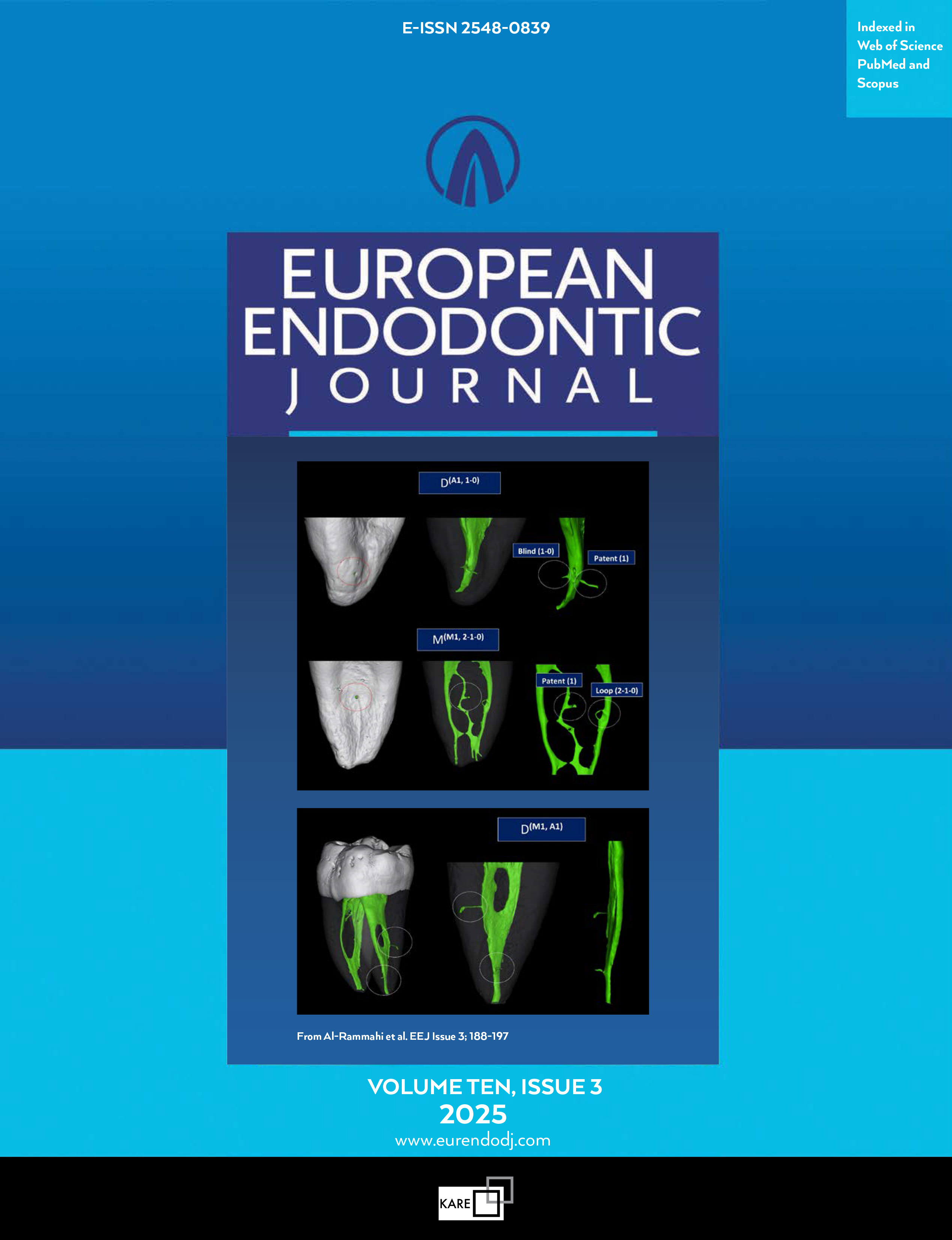Metrics
2024 IMPACT FACTOR
5 year Impact Factor
Eigenfactor Score
2024 CiteScore
Journal Citation Reports
(Clarivate 2025, JIF Rank)
Analgesic Efficacy of Ibuprofen and Diclofenac Potassium on Postoperative Endodontic Pain in Maxillary and Mandibular First Molars with Irreversible Pulpitis: A Randomised Controlled Trial
Mohammadreza Vatankhah1, Nazanin Zargar2, Mandana Naseri2, Saba Salem3, Alireza Akbarzadeh Baghban4, Ayeh Etemadi2, Omid Dianat51Iranian Center for Endodontic Research, Faculty of Dentistry, Shahid Beheshti University of Medical Sciences, Tehran, Iran2Department of Endodontics, Faculty of Dentistry, Shahid Beheshti University of Medical Sciences, Tehran, Iran
3Private Office, Tehran, Iran
4Proteomics Research Center, Faculty of Rehabilitation, Shahid Beheshti University of Medical Sciences, Tehran, Iran
5Division of Endodontics, Department of Advanced Oral Sciences and Therapeutics, University of Maryland, Baltimore, Maryland, USA
Objective: The management of postoperative endodontic pain (PEP) is essential to contemporary endodontic practice. Diclofenac and ibuprofen (IBU) are two of the most widely-used non-steroidal anti-inflammatory analgesics. However, their comparative data are neither sufficient nor conclusive. This prospective randomised clinical trial aimed to compare the analgesic efficacy of diclofenac potassium (DFK) with IBU on PEP in maxillary and mandibular first molars diagnosed with irreversible pulpitis after single-visit non-surgical root canal treatment.
Methods: Sixty-four patients were randomised into two groups of DFK (n=32) and IBU (n=32), using the stratified permuted randomisation method, and 61 participants completed the trial. After root canal treatment, patients randomly received IBU 400 mg every 6 hours (n=31) or DFK 50 mg every 8 hours (n=30) for 24 hours. Patients recorded their pain level on 0-100 mm visual analogue scales (VAS) at 2, 4, 6, 12, and 24 hours after the treatment. Recorded VAS scores and the number of pain-free patients (VAS<5) were compared between the two groups. A generalised linear estimation equation model, Chi-Square test, and MannWhitney U test were used to analyse the data.
Results: The mean overall PEP score was statistically significantly lower in the DFK group than the IBU group with a p value of 0.030. Pain scores at 2 (p=0.034), 4 (p=0.021), and 24 hours (p=0.042) after the treatment were also significantly lower for DFK than IBU. The number of pain-free patients was also significantly higher in the DFK group at 2-hour (p=0.015) and 4-hour (p=0.048) time points and overall (p=0.013) compared to the IBU group. There was no adverse effect observed in either group.
Conclusion: Based on the results, taking multi-dose DFK 50 mg by the clock had better analgesic outcomes than multi-dose IBU 400 mg for PEP management. (EEJ-2022-01-07)
Manuscript Language: English
(1012 downloaded)


